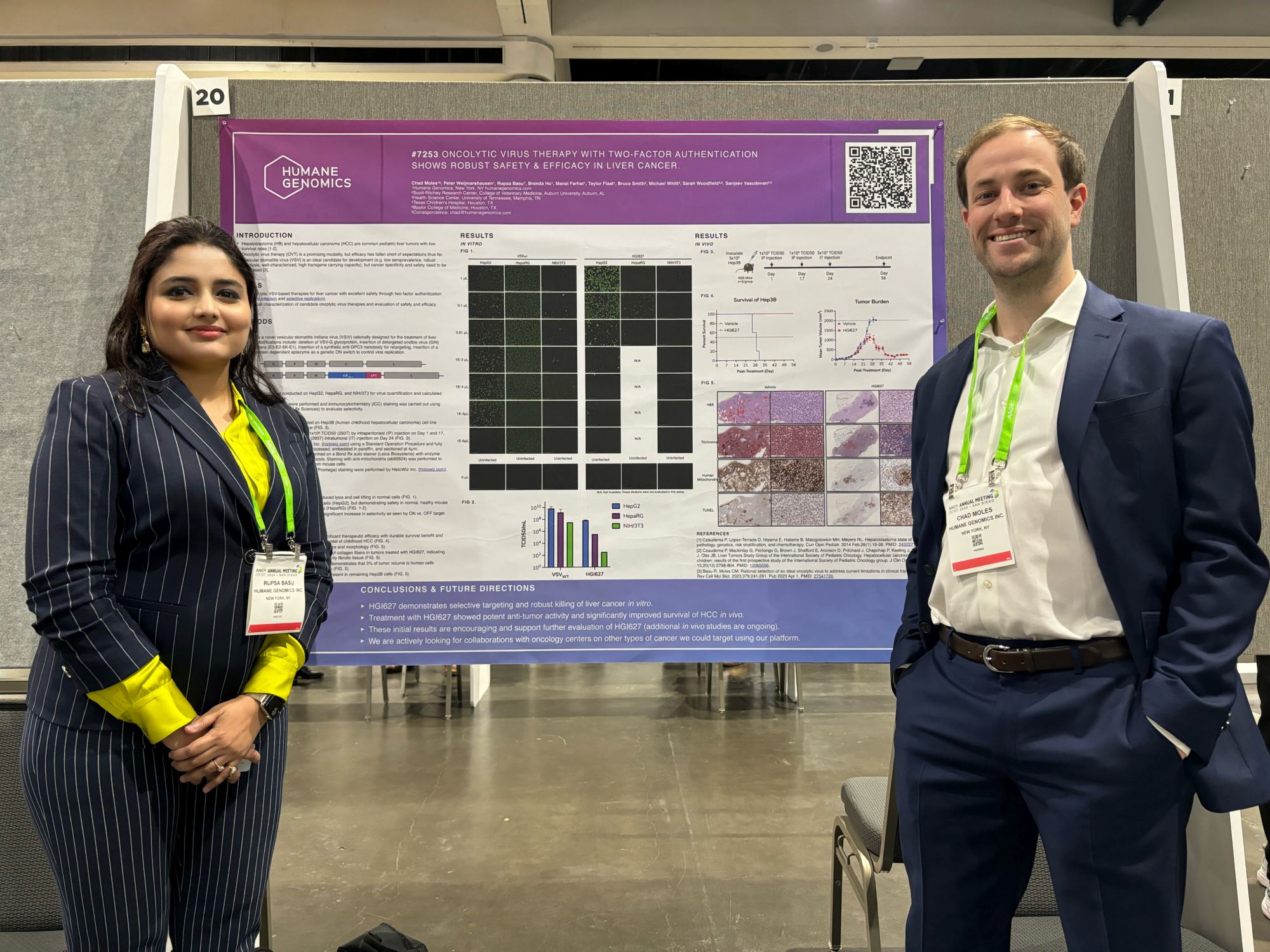Reflections from AACR: The evolving landscape of Oncolytic Viral Therapies

We recently attended the American Association for Cancer Research (AACR) conference. It’s the largest cancer research gathering in the U.S., and we were thrilled to present our latest results and learn from peers. Here’s a snapshot of the current developments in oncolytic viral therapies (OVTs).
The State of Oncolytic Viral Therapies
Diverse Targets and Approaches:
Presentations at AACR showed a strong interest in OVTs, featuring 39 oncolytic viruses from 23 companies and 11 research groups. These therapies aim to combat a wide range of cancers, including 12 different types. Pancreatic, colon, and breast cancers were major focuses, with each attracting 6, 5 and 5 projects respectively. Alongside these, one project, like ours, targets liver cancer.
Viral Vectors used:
Herpes simplex virus was the most common vector, used in 11 projects. It was followed by Adenovirus in 9 projects and Vaccinia virus in 6. One other group, like ours, employed a therapy based on VSV.
Innovative Strategies for Targeting Cancer:
Among the showcased projects, four utilized selective replication strategies. These strategies use Adenoviruses engineered with promoters that activate only in cancer cells. This approach is crucial for minimizing harm to healthy tissues. Another four projects pursued selective infection strategies. Among these, three incorporated chimeric constructs to improve targeting specificity, and one, like ours, employed an engineered scaffold for enhanced precision. However, besides us, none combined both methods, highlighting potential innovation areas.
Our Unique Position and Next Steps
Our project uses Vesicular Stomatitis Virus (VSV), an uncommon choice that helps bypass some immune resistance issues seen with more familiar viruses. We also use an engineered glycoprotein and an aptazyme, aligning us with the most innovative attempts to boost selectivity and safety in OVTs.
The insights we gained at AACR are invaluable as we continue our research. We are inspired by the progress shared and excited about the unique aspects of our approach that could lead to safer, more effective cancer treatments.
Looking Forward
The AACR meeting highlighted the dynamic nature of oncolytic virotherapy. Committed to pioneering new cancer treatments, we are motivated to advance our research. Our goal is to convert these scientific insights into practical solutions that could transform cancer therapy one day.
Stay tuned to our blog for more updates and in-depth discussions on various aspects of our research and development in oncolytic viral therapies.